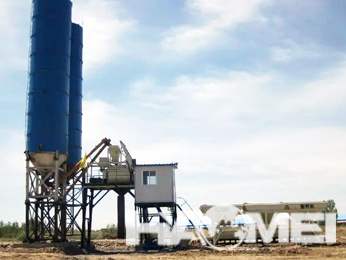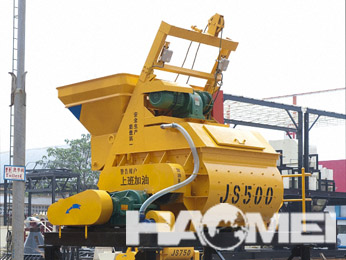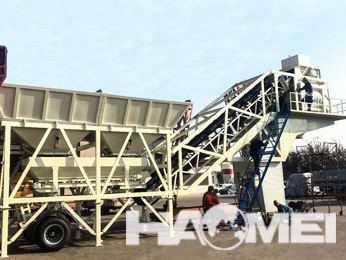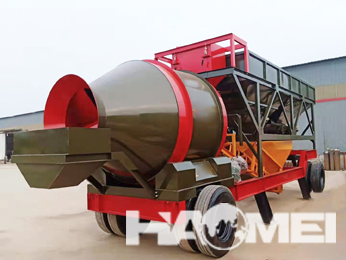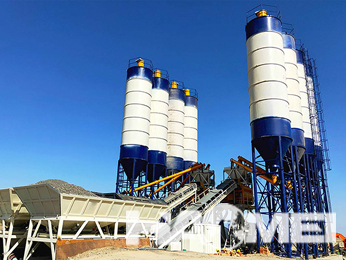
News
Hot Products
Self-Loading Concrete Mixer Truck: The Best Model for Mobile Construction
In the modern construction industry, the efficiency and flexibility of equipment directly affect project progress and quality. As one of the most essential materials in construction, concrete mixing and transportation methods have always been a key concern for contractors. With the increasing diversification of engineering projects and the rising trend of scattered construction sites, traditional mixing methods are no longer sufficient. The self-loading concrete mixer truck, with its “all-in-one” functionality, has become the preferred model for mobile construction.
Multifunctional Self-Loading Mixer
A self-loading concrete mixer is a fully automated machine that integrates loading, weighing, mixing, transporting, and discharging into a single unit. It functions much like a “mobile mini batching plant.”
To meet different capacity demands, HAOMEI Machinery produces self-loading concrete mixers in multiple capacities, including 1.2 m³, 1.8 m³, 2.6 m³, 3.5 m³, 4.0 m³, 5.5 m³, and 6.5 m³. Theoretical productivity ranges from 24 m³/h to 66 m³/h, with actual production subject to real-time operation conditions.
Key Technical Features of Self-Loading Mixers
Automatic Loading System
Equipped with a hydraulic shovel bucket, the vehicle can directly load aggregates into the mixing drum, eliminating secondary handling and improving efficiency.Superior Mixing Performance
The drum is designed with spiral blades and optimized geometry, allowing rapid and uniform mixing to ensure high-quality concrete.Accurate Weighing System
Built-in load cells enable precise weighing of cement, sand, aggregates, and water, ensuring automatic batching according to mix design and minimizing human error.Reliable Powertrain
Diesel engine combined with a hydraulic transmission system guarantees stable operation even in remote areas without electricity supply.Multi-Angle Discharging Design
The drum can rotate 270° or 360°, enabling discharge at various angles and heights to meet diverse construction needs.High Mobility and Flexibility
With a hydraulic torque converter gearbox and 4-wheel drive system, the truck features a minimum turning radius of only 5 meters and a climbing capacity of up to 30%, making it suitable for mountainous, sandy, and other rough terrains.Comfortable and Safe Operation
The cabin is equipped with air conditioning, hydraulic power steering, and a reversing camera, ensuring operator comfort and safety.
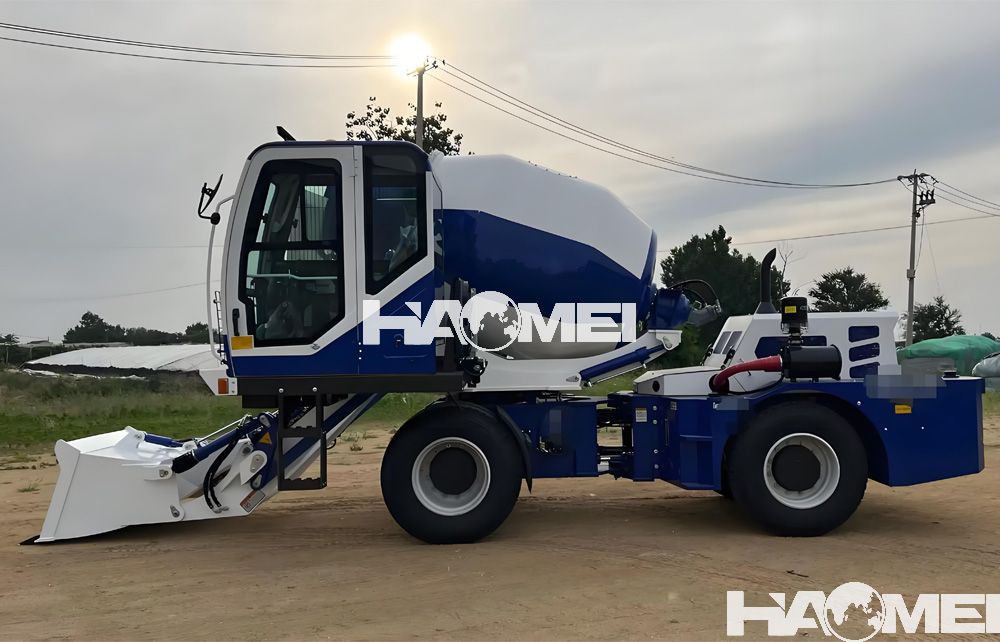
Advantages Compared with Traditional Methods
1.Integrated Design Replaces Multiple Machines
Traditional sites require a loader + batching plant + transit mixer for collaboration.
A self-loading mixer alone can handle loading, mixing, and transportation, reducing equipment investment and labor requirements.
2.Flexible Mobility for Complex Conditions
Compact body design allows easy maneuvering in mountainous regions, rural areas, and narrow roads.
Unlike fixed batching plants, self-loading mixers are not restricted by site conditions, making them ideal for mobile and scattered projects.
3.High Efficiency and Lower Operating Costs
Diesel engine offers low energy consumption.
One mixer can replace multiple vehicles, reducing transport frequency and manpower costs.
Concrete can be produced on-site, preventing slump loss caused by long-distance transport.
4.Smart Operation, Reduced Labor Dependency
On-board electronic weighing ensures accurate batching and stable concrete quality.
A single operator can handle the machine, reducing workforce needs—especially beneficial in labor-scarce regions.
5.Eco-Friendly and Efficient for Green Construction
Enclosed mixing reduces dust emissions.
On-demand production minimizes concrete waste, aligning with sustainable construction practices.
Typical Application Scenarios
Rural Housing and Small Construction Sites
In rural housing projects or small-scale works, self-loading mixers can directly enter the site and deliver fresh concrete on demand, saving the cost of building a batching plant.
Road and Bridge Construction
For rural roads or mountain highways requiring scattered operations, self-loading mixers allow fast and flexible site-to-site mobility, greatly accelerating progress.
Water Conservancy and Tunnel Projects
In dams, canals, or tunnels where conditions are challenging and sites are scattered, self-loading mixers provide flexible concrete supply while reducing material waste.
Supplementary Equipment for Large Projects
On large construction sites, self-loading mixers are often used as supporting units, handling small-volume concrete mixing and transportation tasks flexibly.


